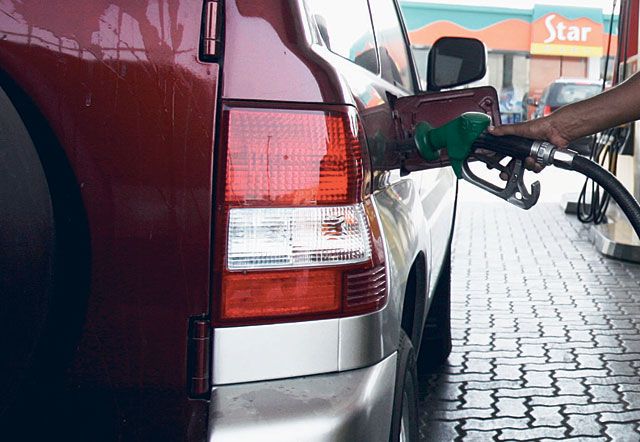Dubai: Exposure to smelly hydrocarbon vapours at petrol stations while refuelling your car can cause negative health impacts — from a heady "high" to nausea or even cancer.
While technology to minimise toxic fumes from escaping into the atmosphere is widespread in Europe, the UAE air pollution law currently does not enforce these requirements on filling stations here.
Plumes of benzene, invisible to the naked eye but one of the main ingredients of petrol, escape from the approximate 550 stations in the UAE each time a petrol tank is uncapped.
Benzene is considered to be the most hazardous component of hydrocarbon and has been classified as a Group 1 carcinogenic substance by the International Agency for Research on Cancer and the US Environmental Protection Agency (EPA).
The higher the ambient temperature, the higher the rate of evaporation becomes, which makes the issue more pressing in the UAE where summer temperatures can reach 50 degrees Celsius in the sun.
Fuel recovery systems, which suck up vapours from underground storage tanks and directly from pumps as petrol is dispensed, are common across Europe.
In Germany for example, 230,000 tonnes of petrol vapour was recovered from stations in 2008, according to statistics from TST Electronics, an environmental technical consultant from Germany.
Germany has around 16,500 petrol stations, all of which are forced by the law to recover 85 per cent of vapours from the pumps and while refilling the station's storage tank.
Sa'ad Al Numairy, environmental adviser at the UAE Ministry of Environment and Water, said escaping vapours are an occupational hazard for pump attendants who spend up to eight hours a day at petrol station forecourts. UAE federal law on air pollution control, local order 61 of 1991, states that monitoring should be done but does not point out specific targets.
"We have air pollution laws for volatile organic compounds, it is there, but it might not be appropriate for the petrol pump," Al Numairy told Gulf News. "It is something that is being looked into. We are aware of the problem, it is an international problem. We will try to approach it in a holistic way and look into recovery systems."
No comment was available from Emirates National Oil Company (Enoc) or Abu Dhabi National Oil Company (Adnoc).
Clinic
However, Enoc opened an in-house occupational health clinic for staff in October this year at its Dubai headquarters. The clinic offers staff members health evaluations, and is managed by two Occupational Health Physician Specialists and four nurses. There are plans to employ a part-time industrial or occupational physiotherapist to help in rehabilitation consultation for specific occupational injuries and illnesses.
European directives consider that benzene is a carcinogen present in many work situations and that a large number of workers may be exposed to a potential health risk.
It is estimated that 0.5 per cent per litre of petrol evaporates at 30 degrees Celsius. "It could be more than 1 per cent in the UAE," said Einas Shalabi, marketing and business development manager at TST Electronics, based in Dubai. "There is an economical aspect because it is a sensitive product and the vapour can be recovered and put back in. The problem is that there is no clear regulation."
Are you aware of the dangers caused by vapours at petrol stations? Is there a way that this can be avoided? How can the petrol attendants be protected?













